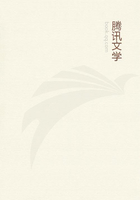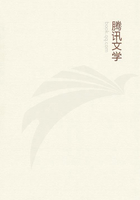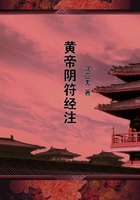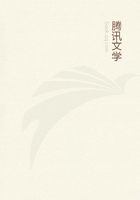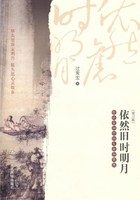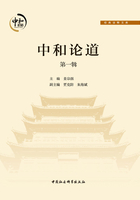IN THE NORTHERN FORESTS
Bird's-eye View of Russia--The Northern Forests--Purpose of my Journey--Negotiations--The Road--A Village--A Peasant's House--
Vapour-Baths--Curious Custom--Arrival.
There are many ways of describing a country that one has visited.
The simplest and most common method is to give a chronological account of the journey; and this is perhaps the best way when the journey does not extend over more than a few weeks. But it cannot be conveniently employed in the case of a residence of many years.
Did I adopt it, I should very soon exhaust the reader's patience.
I should have to take him with me to a secluded village, and make him wait for me till I had learned to speak the language. Thence he would have to accompany me to a provincial town, and spend months in a public office, whilst I endeavoured to master the mysteries of local self-government. After this he would have to spend two years with me in a big library, where I studied the history and literature of the country. And so on, and so on. Even my journeys would prove tedious to him, as they often were to myself, for he would have to drive with me many a score of weary miles, where even the most zealous diary-writer would find nothing to record beyond the names of the post-stations.
It will be well for me, then, to avoid the strictly chronological method, and confine myself to a description of the more striking objects and incidents that came under my notice. The knowledge which I derived from books will help me to supply a running commentary on what I happened to see and hear.
Instead of beginning in the usual way with St. Petersburg, I prefer for many reasons to leave the description of the capital till some future time, and plunge at once into the great northern forest region.
If it were possible to get a bird's-eye view of European Russia, the spectator would perceive that the country is composed of two halves widely differing from each other in character. The northern half is a land of forest and morass, plentifully supplied with water in the form of rivers, lakes, and marshes, and broken up by numerous patches of cultivation. The southern half is, as it were, the other side of the pattern--an immense expanse of rich, arable land, broken up by occasional patches of sand or forest. The imaginary undulating line separating those two regions starts from the western frontier about the 50th parallel of latitude, and runs in a northeasterly direction till it enters the Ural range at about 56 degrees N.L.
Well do I remember my first experience of travel in the northern region, and the weeks of voluntary exile which formed the goal of the journey. It was in the summer of 1870. My reason for undertaking the journey was this: a few months of life in St.
Petersburg had fully convinced me that the Russian language is one of those things which can only be acquired by practice, and that even a person of antediluvian longevity might spend all his life in that city without learning to express himself fluently in the vernacular--especially if he has the misfortune of being able to speak English, French, and German. With his friends and associates he speaks French or English. German serves as a medium of communication with waiters, shop keepers, and other people of that class. It is only with isvoshtchiki--the drivers of the little open droshkis which fulfil the function of cabs--that he is obliged to use the native tongue, and with them a very limited vocabulary suffices. The ordinal numerals and four short, easily-acquired expressions--poshol (go on), na pravo (to the right), na lyevo (to the left), and stoi (stop)--are all that is required.
Whilst I was considering how I could get beyond the sphere of West-
European languages, a friend came to my assistance, and suggested that I should go to his estate in the province of Novgorod, where I
should find an intelligent, amiable parish priest, quite innocent of any linguistic acquirements. This proposal I at once adopted, and accordingly found myself one morning at a small station of the Moscow Railway, endeavouring to explain to a peasant in sheep's clothing that I wished to be conveyed to Ivanofka, the village where my future teacher lived. At that time I still spoke Russian in a very fragmentary and confused way--pretty much as Spanish cows are popularly supposed to speak French. My first remark therefore being literally interpreted, was--"Ivanofka. Horses. You can?"
The point of interrogation was expressed by a simultaneous raising of the voice and the eyebrows.
"Ivanofka?" cried the peasant, in an interrogatory tone of voice.
In Russia, as in other countries, the peasantry when speaking with strangers like to repeat questions, apparently for the purpose of gaining time.
"Ivanofka," I replied.
"Now?"
"Now!"
After some reflection the peasant nodded and said something which I
did not understand, but which I assumed to mean that he was open to consider proposals for transporting me to my destination.
"Roubles. How many?"
To judge by the knitting of the brows and the scratching of the head, I should say that that question gave occasion to a very abstruse mathematical calculation. Gradually the look of concentrated attention gave place to an expression such as children assume when they endeavour to get a parental decision reversed by means of coaxing. Then came a stream of soft words which were to me utterly unintelligible.
I must not weary the reader with a detailed account of the succeeding negotiations, which were conducted with extreme diplomatic caution on both sides, as if a cession of territory or the payment of a war indemnity had been the subject of discussion.
Three times he drove away and three times returned. Each time he abated his pretensions, and each time I slightly increased my offer. At last, when I began to fear that he had finally taken his departure and had left me to my own devices, he re-entered the room and took up my baggage, indicating thereby that he agreed to my last offer.

